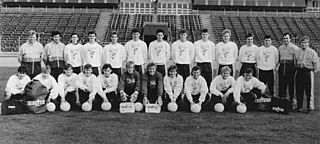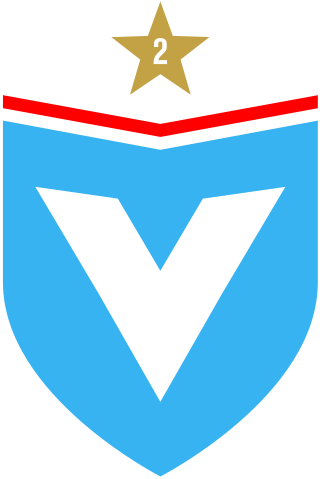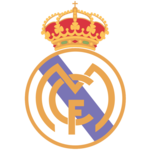
Sportgemeinschaft Dynamo Dresden e.V., commonly known as SG Dynamo Dresden or Dynamo Dresden, is a German association football club based in Dresden, Saxony. They were founded on 12 April 1953 as a club affiliated with the East German police and became one of the most popular and successful clubs in East German football, winning eight league titles.

The Regionalliga Süd was the second-highest level of the German football league system. It existed in the south of West Germany from 1963 until the formation of the 2. Bundesliga in 1974. It covered the three states of Bavaria, Baden-Württemberg and Hesse.
The 2009–10 3. Liga season was the second season for the newly formed tier III of the German football league system. The season began on 25 July 2009 and ended on 8 May 2010.

Jörn Lenz is a German former professional footballer who played as a defender. Lenz had four different spells with BFC Dynamo during his professional playing career and has continued to serve as part of the club's backroom staff since retiring in 2008. Lenz played a total of 374 matches for BFC Dynamo between 1988 and 2008. He made two appearances for BFC Dynamo in the 1989-90 European Cup Winners' Cup.
The 2010–11 Bundesliga was the 48th season of the Bundesliga, Germany's premier football league. It began on 20 August 2010 and concluded on 14 May 2011. The winter break was in effect between weekends around 18 December 2010 and 15 January 2011. The defending champions were Bayern Munich. The league had also updated its logo for the season. The official match ball is Adidas Torfabrik 2010.
The 2010–11 3. Liga was the third season of the 3. Liga, Germany's third tier of its football league system. The season commenced on the weekend of 23 July 2010 and ended with the last games on 14 May 2011. The winter break was in effect between weekends around 18 December 2010 and 29 January 2011.
The 2011–12 2. Bundesliga was the 38th season of the 2. Bundesliga, Germany's second tier of its football league system. The season commenced on 15 July 2011, three weeks earlier than the 2011–12 Bundesliga season, and ended with the last games on 6 May 2012. The traditional winter break was to be held between the weekends around 18 December 2011 and 4 February 2012. The league comprises eighteen teams.
The 2011–12 3. Liga was the fourth season of the 3. Liga, Germany's third tier of its football league system. The season commenced on 22 July 2011, two weeks earlier than the 2011–12 Bundesliga season and one week after the 2011–12 2. Bundesliga season, and ended with the last games on 5 May 2012. The traditional winter break was held between the weekends around 18 December 2011 and 22 January 2012.
The 2012–13 2. Bundesliga was the 39th season of the 2. Bundesliga, Germany's second-level football league. The season began on 3 August 2012 and ended with the last games on 19 May 2013, with a winter break held between the weekends around 15 December 2012 and 2 February 2013.
The 2013–14 3. Liga was the sixth season of the 3. Liga, Germany's third-level football league.
The 2014–15 3. Liga was the seventh season of the 3. Liga, Germany's third-level football league.

Fußball-Club Viktoria 1889 Berlin Lichterfelde-Tempelhof e.V., commonly known as FC Viktoria 1889 Berlin or Viktoria Berlin, is a German association football club based in the locality of Lichterfelde of the borough of Steglitz-Zehlendorf in Berlin. The club was formed on 1 July 2013 from a merger of BFC Viktoria 1889 and Lichterfelder FC. The club has the largest football department in Germany. The club also has 1,600 active members.

The 1962–63 Oberliga was the eighteenth Oberliga season, the first tier of the football league system in West Germany. The league operated in five regional divisions, Berlin, North, South, Southwest and West. The five league champions and the runners-up from the west, south, southwest and north then entered the 1963 German football championship which was won by Borussia Dortmund. It was Borussia Dortmund's third national championship, having previously won it in 1956 and 1957.

The 1961–62 Oberliga was the seventeenth season of the Oberliga, the first tier of the football league system in West Germany. The league operated in five regional divisions, Berlin, North, South, Southwest and West. The five league champions and the runners-up from the west, south, southwest and north then entered the 1962 German football championship which was won by 1. FC Köln. It was 1. FC Köln's first-ever national championship.

The 1960–61 Oberliga was the sixteenth season of the Oberliga, the first tier of the football league system in West Germany. The league operated in five regional divisions, Berlin, North, South, Southwest and West. The five league champions and the runners-up from the west, south, southwest and north then entered the 1961 German football championship which was won by 1. FC Nürnberg. It was 1. FC Nürnberg's eighth national championship and its first since 1948.

The 1959–60 Oberliga was the fifteenth season of the Oberliga, the first tier of the football league system in West Germany. The league operated in five regional divisions, Berlin, North, South, Southwest and West. The five league champions and the runners-up from the west, south, southwest and north then entered the 1960 German football championship which was won by Hamburger SV. It was Hamburg's fourth national championship and its first since 1928.

The 1958–59 Oberliga was the fourteenth season of the Oberliga, the first tier of the football league system in West Germany. The league operated in five regional divisions, Berlin, North, South, Southwest and West. The five league champions and the runners-up from the west, south, southwest and north then entered the 1959 German football championship which was won by Eintracht Frankfurt. It was Frankfurt's sole national championship win. The 1959 final was one of only two post Second World War finals to go into extra time, the other having been in 1949.

The 1952–53 Oberliga was the eighth season of the Oberliga, the first tier of the football league system in West Germany and the Saar Protectorate. The league operated in five regional divisions, Berlin, North, South, Southwest and West. The five league champions and the runners-up from the south, north and west then entered the 1953 German football championship which was won by 1. FC Kaiserslautern. It was 1. FC Kaiserslautern's second national championship, having previously won it in 1951.

The 1945–46 Oberliga was the inaugural season of the Oberliga, the first tier of the football league system in Allied-occupied Germany. The league operated in seven regional divisions, Berlin, South and Southwest. For the second consecutive season no German championship was held. The competition would resume in 1948 with 1. FC Nürnberg taking out the first post-war championship.
The 2019–20 Bundesliga was the 57th season of the Bundesliga, Germany's premier football competition. It began on 16 August 2019 and concluded on 27 June 2020. Bayern Munich were the defending champions, and won their record-extending 8th consecutive title and 30th title overall on 16 June with two games to spare. With 100 goals scored in 34 matches, Bayern became the second side to reach this milestone in a Bundesliga season, after the record 101 goals the club previously managed to score in 1971–72.








